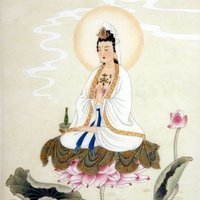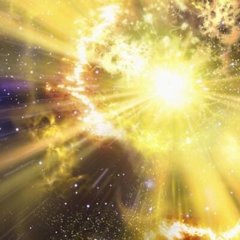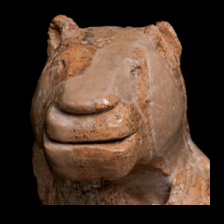-
Content count
369 -
Joined
-
Last visited
-
Days Won
1
About Iskote
-
Rank
into the fire
Recent Profile Visitors
5,460 profile views
-
I just happened to swing by for a visit and and I saw this old thread of mine from almost 3 years ago had popped up again. My own views and experience since then have continued to grow and evolve. What I would like to offer up for consideration now is that some ordinary every day people who don't practice any form of cultivation can live well into their 80's and 90's while still being able to function reasonably well and still have pretty decent mental clarity. A smaller few even make it to the low 100's while still being able to get around to some degree and some still seem to have pretty decent mental clarity. At the very least, the neidan practices I am familiar with are supposed to bring good health and also notably increase longevity (yes, in my experience those are some common claims made about the benefits of neidan practice), yet I personally don't know of many daoists in modern times who have done too much better than many ordinary folks in the health and longevity areas once they get older. Any 'spiritual' benefits beyond these more mundane benefits would be very hard if not impossible to quantify, but the basic achievements of good health and longevity well into old age don't seem to be too far above the average of 'ordinary' people. That's not to say I think neidan practice can't help improve health and longevity, because I actually think it can, but just that I wonder if there really are many who truly achieve even those basic goals in neidan practice which would place them very much above the norm for health and longevity into old age. Some may well do, but it doesn't seem to be too overly many that I know of, anyway. Therefore I would suggest that we should just feel blessed if we can truly achieve good health and mental clarity into old age, and also achieve true longevity above the norm if one desires that. Talk of 'spiritual immortality', etc., seems a pretty lofty goal when many don't seem to even achieve good health and mental clarity into old age beyond what is the norm. In my view, if you can truly achieve and maintain good health and mental clarity well into old age, you would be doing very well indeed in your daoist and related practices. I truly wonder whether we even really need any special 'spiritual' cultivation beyond just trying to understand self better and improve on our interactions with others, as certain schools of thought are that we are all 'immortal', anyway, and we are actually here experiencing this physical life 'dream' by choice made at some deeper level. I can't say for certain what is true or not true in that regard, but I am inclined in that direction. At any rate, any practice that is really beneficial should, of course, have notable practical advantages for you over time. If you just seem to be spinning your wheels, maybe it's time to do some re-evaluation. Best wishes to all.
-
What is internal alchemy, anyway? Post your views/experience here. Here are some of my own thoughts on the matter: Internal alchemy practice is actually a specific type of 'system' with (at least fairly) specific goals, although those goals them self can appear rather vague such as 'immortality' and 'returning to dao', and different 'neidan' schools may define those goals somewhat differently. Although a neidan system may include some qigong and neigong practices and physical movement practices, etc., it will also typically include specific meditation practices with the specific purpose of achieving the goals of 'immortality' and 'returning to dao' and similar. Different qigong and neigong practices available out there are not necessarily at all (and usually aren't) 'internal alchemy'/ 'neidan' specific, although some such practices may have similarities or overlap to some neidan practices from some neidan schools. One problem is that throughout China's history, terms and concepts and practices from neidan systems have sometimes been borrowed and mixed in with other 'systems' which may have very different goals and views from neidan, so you can get martials arts or health/medical practices which may use some similar terms and concepts as used in neidan, but which may well be used somewhat differently. The point is, from what I have gathered, qigong practices and neigong practices which may have some similarities to some neidan practices, are not necessarily at all directly related to neidan, and they usually have quite a different focus. The whole thing becomes even more murky when you throw into the mix that there are different schools/sects which may include neidan or similar practices, but which may have quite different practices and views from other neidan systems. For example, some of those schools may have strong daoist religious aspects interwoven with their 'neidan' practices, and others may not. Therefore, there really is no clear cut right and wrong in all this, in my view. There is also the problem that during the Chinese cultural revolution, the Chinese people destroyed many Chinese temples and beat and killed many daoist and buddhists, and burned many books, etc, and forbade anyone from practicing such 'superstitious' practices. The end result was when the cultural revolution began to subside and the Chinese government began to allow daoists and buddhists and others to start these types of practices again under the close supervision and directon from the Chinese government , much had been lost, and people were left to try to piece together some of these systems and practices again. The takeaway from all the above is, from my perspective, anyway, there really is no clear cut way to say such and such a system is 'true and pure neidan'. This has helped open the door for various charlatans and self-deluded people to start offering and promoting various practices as being 'neidan'. Often such people will insist that what they promote is the only really 'authentic' practices, and they may spend a lot of time criticizing and putting down other systems and teachers to try to bolster up what they are offering. Some of these fakes and self-deluded people may only have read through some old daoist neidan texts and practiced some qigong practices and then declare them self to be an 'expert' on the topic, and start promoting them self and implying that they are some kind of very accomplished 'master'. Yes, in my view, it really is that much of a mess. So, what can an aspiring student do to potentially find a suitable teacher if they are interested in such things? In my view, you really can only use your best judgement and try to get to know the teacher for some time, if possible, and see if they seem to truly embody some of the principles and abilities they claim their system should bring. Can they answer questions in a clear and practical way, or do they just throw around more terms and concepts or become dismissive when asked questions, and seem unable to explain anything in a clear way? Can the teacher demonstrate in some clear and practical way that they have real accomplishments in what they are claiming to offer? Can this teacher provide clear details about their own teachers and lineage (there are self-proclaimed 'masters' out there who have made up their lineage and teachers). In the end, the aspiring student can only use their best judgement and try to find something which resonates with them personally. What some people may insist is a true 'accomplished master' may appear to be a complete fraud or self-deluded person to others, so in the end you will have to go with your own judgement. Keep in mind that traditional neidan practice would typically require several hours of practice a day as a minimum, and some (many?) neidan systems require celibacy, as well, so such practices are not really suitable for many people. What are your views/experience with neidan?









